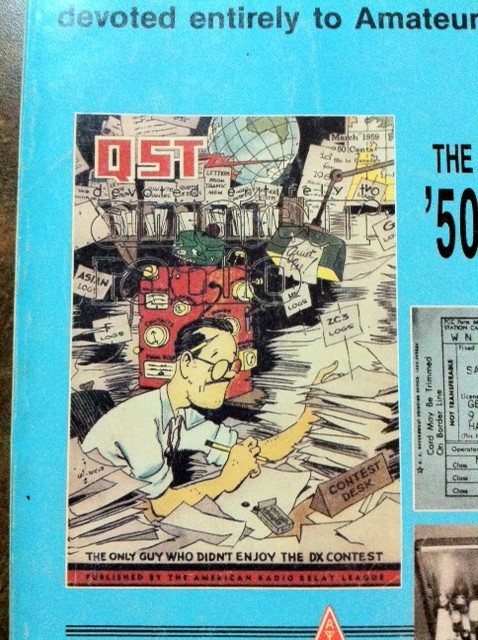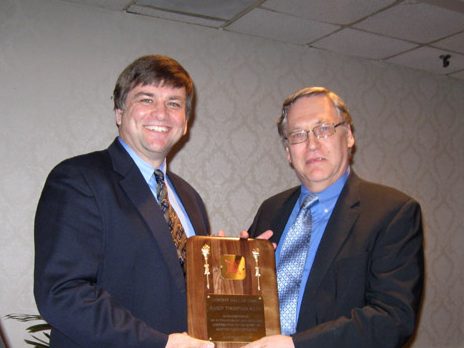I have now had the opportunity to use real-time contest scoreboards in two contests and have some observations to share. For CQWW Phone 2006 and SS CW 2006, I was submitting my scores and watching the scores through the on-line scoreboard set up by Gerry, W1VE.
http://www.w1ve.com/livescores/default.aspx [note: this link no longer works. See http://cqcontest.net/ for a current score reporting site.]
The good
I am a competitive person. Unfortunately, it is difficult to really compare scores unless you and your competition do a full out effort and even then, you only find out how you did after the contest is over. If you are just playing around, it is hard to find a source of competitive motivation (other than just enjoying the fun – which reduces the “competition” aspect to busting pileups and holding a frequency).
In the CQWW Phone contest, I was not planning a full effort. It was very inspiring for me to have the scoreboard up on the screen during the contest so I could measure how I was doing against other participants in real time.
I could see their score, then operate for a few hours and see if I was gaining or losing ground. In other occasions like this, I would bring up the previous year’s results and compete against those, which helped but was always subject to my own ‘adjustment’ of the year to year difference in conditions.
The scoreboard really made the contest much more fun for me. By seeing my score compared to others, it actually motivated me to operate more than I had originally planned. I would think this is good for the contest overall.
During the contest, I noticed my son kept coming into the shack to see how I was doing. (He is 16 and recently got his Tech license.) He has never shown this kind of interest during a contest before. Turns out, he was coming in to see how I was doing on the scoreboard. So live scoreboarding may provide a vehicle to demonstrate the ebb and flow and fun and competition of contesting to others.
In SS CW, Andy N2NT reported after the contest that he and his son were watching my progress on the scoreboard while guest op John N2NC was in the other room operating. John wasn’t getting info from them, but it was making the whole experience more interesting for Andy.
The not so good
Information is everything. One of the real challenges of single op has always been dealing with the isolation. You work only with your own observations and experience. Your motivation is tested by fatigue.
Unfortunately, many operators now use the Internet for propagation info (and other things such as Instant Messenger) during the contest, so we have a widing definition for what single op really means (and a lot less isolation providing much more information). If we are going to allow any Internet use, then a scoreboard becomes just another tool.
As opposed to a propagation or weather report, the scoreboard lets you know if you are winning or losing against others in the contest right now! This may be motivational, or this may cause some to quit the contest (just like guys quit contests with serial numbers once they feel they can no longer “win”).
But there is a much bigger danger from real-time information. In the CQWW Phone contest, I knew conditions were predicted to be better on Saturday than on Sunday. When I had good runs on 15m in the morning, I made an assumption that I had better work it for all I could. I never even thought to check if 10m was open. It was and this mistake easily cost me 20+ multipliers. IF I had been watching the band breakdowns that are part of the scoreboard, I would have started to see the movement on 10m from others.
This small clue would have caused me to go check the band and catch the opening.
Should on-line scoreboards have a built in delay of 15 or 30 minutes (kind of like stocks on the Internet financial sites)? Would that be enough?
Summary
On-line scoreboards are here. They can serve a valuable service that makes the contest more fun for more people (participants and non-participants alike).
On-line scoreboards can also shift the order of finish in contests for single ops (or other categories) just by providing additional information about the conditions being experienced by other scoreboard participants.
Just as with runners in a Marathon, some are motivated by the chase and some are broken by the pass.
It is unreasonable to expect that any contest committee could legislate how technology is implemented by independent sites. You can only define what participants are allowed to do.
The committee has to make a choice — is Internet use permitted for single ops in any form or not? My preference would be for a total ban.
If Internet use is permitted, then the committee needs to specify the boundaries of what is acceptable use. As part of this, I would suggest that scoreboards be allowed for single ops, but the committee specify that only total score, total QSOs, and total multipliers be permitted information that can be viewed during the contest. I.e., no band breakdowns. Don’t know how practical this is, but it is how I intend to use scoreboards going forward.
Whatever your decision, I will always view contesting as a sport that is best enjoyed solely by what can be done on and through the radio.
Randy Thompson, K5ZD
(This was originally posted to the cq-contest mailing list, November 18, 2006)

